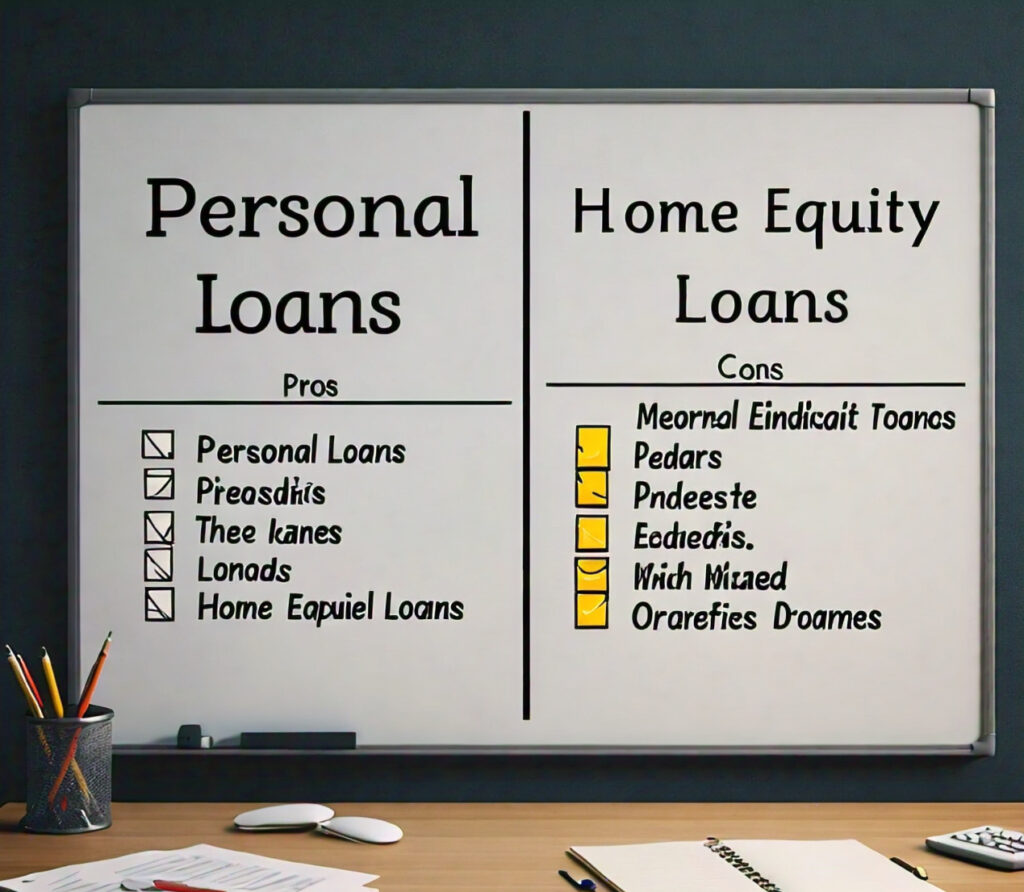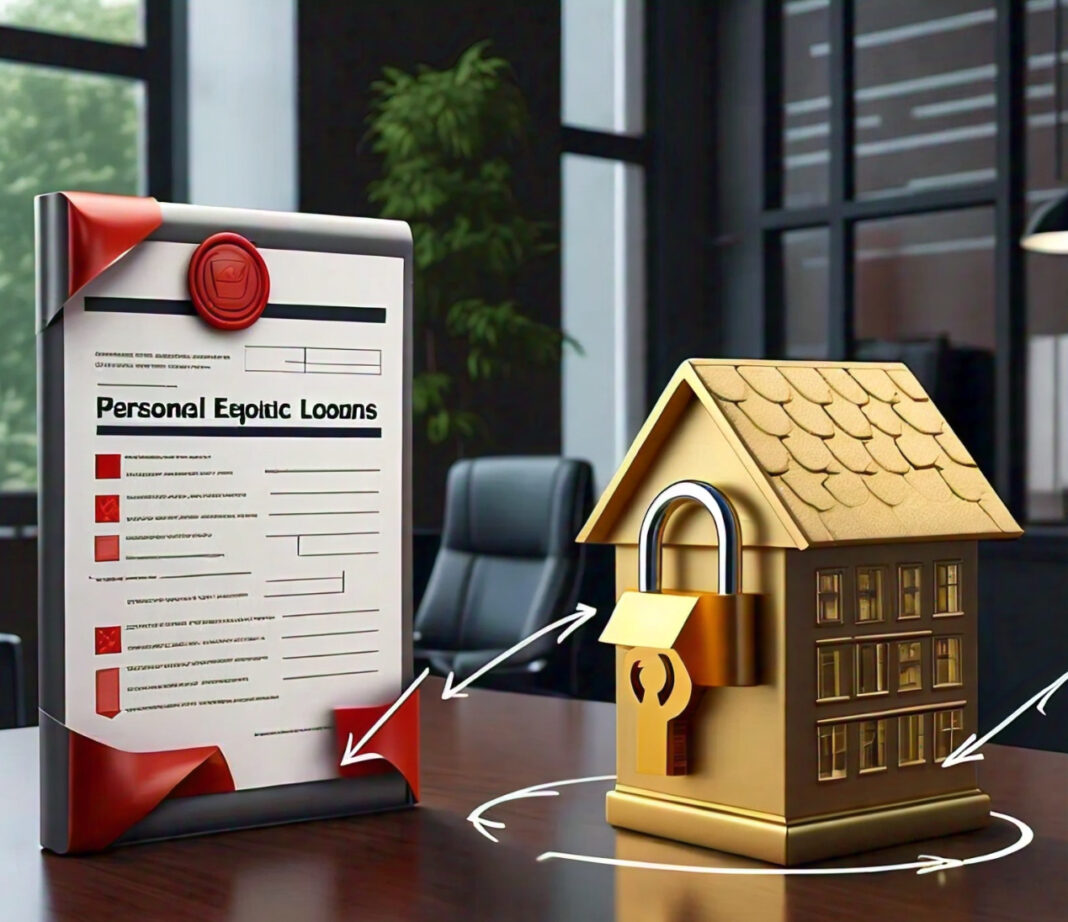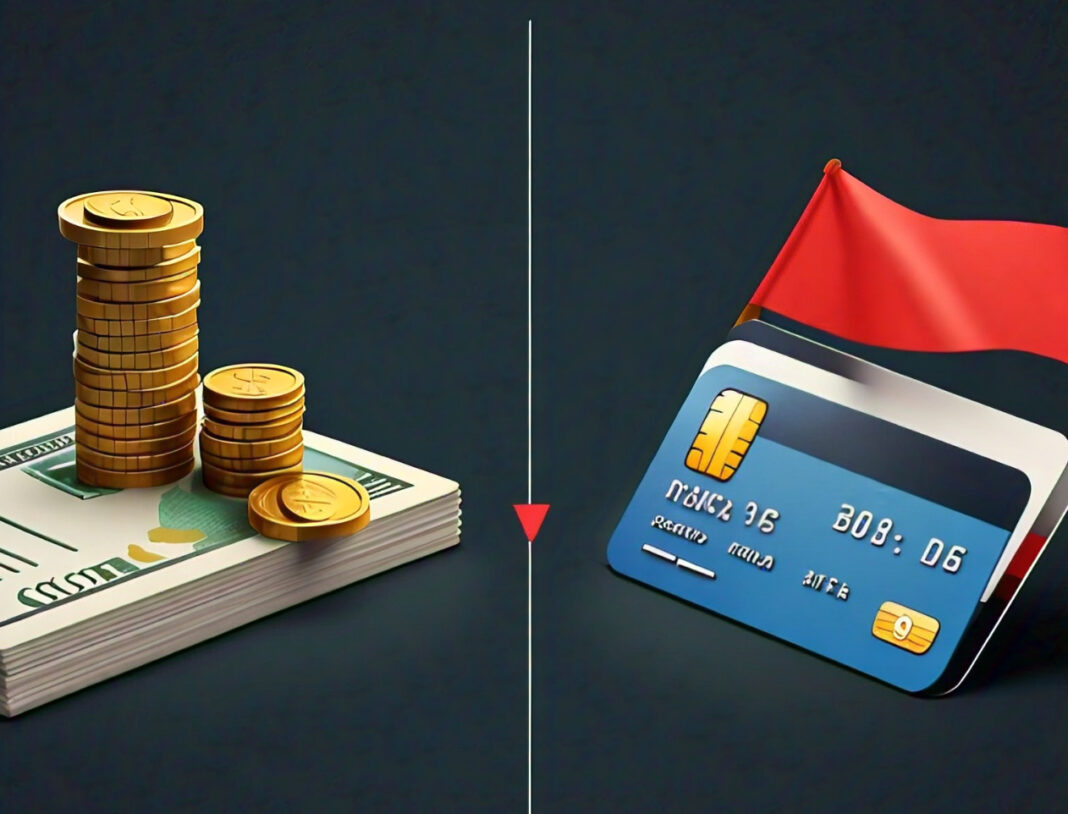Both homeowners and non-homeowners have options for borrowing. Among the options, personal loans and home equity loans will be discussed here. Both types of loans can be used for the needed amount while having different characteristics, advantages, and disadvantages. The following article elaborates on personal loans and home equity loans for any better understanding that might give an indication of which option is best for your financial situation.

Whether you are considering a home renovation, consolidating debt, or financing a major purchase, getting your arms around these two loan types can save you money and help you make a better decision. We explore in detail each loan type, compare the features of each, and provide some guidance on when to choose one over the other.
Understanding Personal Loans
What is a Personal Loan?
A personal loan is the unsecured loan one takes from a bank, credit union, or online lender. Unlike with secured loans, it is not collateral-bound, thus meaning you are not obligated to present a particular asset such as your house or car as security or collateral for the loan.
Key Features of Personal Loans
- Loan Amounts: Personal loans are mostly between $1,000 and $50,000, though some lenders offer higher amounts to creditworthy customers.
- Fixed Interest Rates: Most personal loans carry fixed interest rates, so your payments each month stay the same through your loan term.
- Repayment Terms: The majority of personal loans have repayment terms from 1 to 7 years.
- Fast Approval and Funding: With most of the lending institutions, the approval process is super fast, and funds can be provided within several business days.
- No Collateral Required: A personal loan is unsecured, hence, does not put your assets in jeopardy.
Benefits of Personal Loans
- Flexibility: You can use personal loan funds to meet almost any need-from debt consolidation to funding a wedding.
- No Collateral Required: Personal loans are unsecured, and that means you are not putting your house or any other collateral at risk in case of defaults.
- Fixed Payments: Because the interest rate is fixed, so are your monthly payments, which makes budgeting easier.
- **Funds Available Immediately: Many lenders offer quick application and funding processes.
- Higher Interest Rates: Since they are unsecured, the interest rates for a personal loan are usually relatively higher compared to secured loans, like home equity loans.
- Smaller Loan Amounts: Maximum loan amounts for personal loans are usually less than the maximums on home equity loans.
- Shorter Repayment Terms: Many personal loans come with shorter repayment terms; this could mean larger monthly repayments.
- Stricter Qualifying Criteria: Lenders might have higher credit score and income requirements for approving personal loans.
Understanding Home Equity Loans
What is a Home Equity Loan?
A home equity loan is a secured loan that allows homeowners to leverage a part of their home’s equity. Equity refers to the current market value of your home minus what you still owe on your mortgage.
Features of Home Equity Loans
- Loan Amounts: You might be allowed to borrow larger loan amounts with home equity loans, at times as big as 85% of your home’s equity.
- Fixed Interest Rates: Like personal loans, a lot of times, home equity loans will have fixed interest rates.
- Longer Terms: The time frame in which you pay back a home equity loan is usually longer and can extend up to 30 years.
- Collateral Required: Your home becomes the collateral for this type of loan.
- Second Mortgage: Many a time, one finds home equity loan referred to as a second mortgage.
Advantages of Home Equity Loans
- Lower Interest Rates: Since they are tied to your home, the interest rates in home equity loans are generally lower compared to personal loans.
- Larger Loan Amounts: You can borrow more with a home equity loan, depending on the value of your home and equity.
- Longer Repayment Terms: Extended repayment periods can mean lower monthly payments.
- Tax Benefits: Interest paid on home equity loans used for home improvements is tax-deductible and hence may be a possible benefit; a tax professional should be consulted for advice.
- Fixed Payments: Just like personal loans, most home equity loans offer fixed interest rates and predictable monthly payments.
Disadvantages of Home Equity Loans
- Risk to Your Home: In case of defaulting, one risks losing the home.
- Closing Costs and Fees: Many times, home equity loans have closing costs and fees, almost as high as for a primary mortgage.
- Longer Application Process: The processes for approval of home equity loans are usually longer and more involved compared to personal loans.
- Applicable Only to Homeowners: You should have a home with sufficient equity to apply for a home equity loan.
- Risk of Going Underwater with Your Mortgage: In case the value of your home drops, you could be paying more than the actual value of your home.
Comparison of Personal Loans and Home Equity Loans
Interest Rates
Among personal loans and home equity loans, the most wide difference is their interest rate. Usually, home equity loans can provide you with lower interest rates since this type of loan is secured by your home. According to recent data, the average interest rate for a home equity loan is around 5.78%, while personal loan rates average at 10.16%.
Keep in mind, though, that interest rates can be all over the map depending on things like your credit score, income, loan amount, and the lender. If you have excellent credit, for example, personal loan rates can be as low as 3-4%. If you have poor credit, on the other hand, rates can be as high as 20% or more.
Loan Amounts
Home equity loans can also be taken out for much higher amounts than personal loans. In some cases, you might be able to borrow up to 85% of the equity in your home with a home equity loan. Let’s say that your house is worth $300,000, but you still owe $200,000 on your mortgage. Your equity is then $100,000. You might qualify to borrow up to $85,000 with a home equity loan.
On the other hand, personal loans are often more limited in maximum loan amount. Though some lenders offer personal loans as high as $100,000 or more for the highly qualified, personal loans often range from $1,000 to $50,000.
Repayment Terms
Home equity loans tend to have longer repayment terms compared to personal loans:
Home equity loans: 5 to 30-year repayment terms.
- Personal loans: Repayment terms generally range from 1 to 7 years.
Longer repayment periods may result in smaller monthly repayments, but you will pay more in interest over the term of the loan.
Collateral and Risk
The most fundamental difference between these two types of loan is the requirement for collateral:
- Home equity loans are a type of loan for which you need to use your home as collateral. That means if you can’t pay the loan back, you could potentially lose your house.
- Personal loans do not require any collateral. Whereas defaulting on a personal loan will seriously damage your credit score, you are not risking the potential loss of your home.
Application Process and Approval Time
Personal loan applications are generally much easier and faster than those for home equity loans:
Personal Loans: Many lenders have online applications with quick approvals, sometimes in minutes. Often, the loan can be disbursed in a few days.
Home Equity Loans: Applications will be more complicated, as they would be when applying for a mortgage. It generally involves an appraisal of the home and normally takes several weeks from application to funding.
Fees and Closing Costs
Home equity loans are generally costlier in terms of fees when pitted against personal loans:
Home equity loans: It may require an appraisal, and you will be required to pay for a title search, application fees, and closing costs. It can amount to 2 to 5 percent of the amount borrowed.
Personal loans: While some lenders charge origination fees for a rate ranging between 1 to 8 percent of the amount borrowed, a good number of lenders offer personal loans without any charges.
Choosing Between Personal Loans and Home Equity Loans
Deciding between a personal loan and a home equity loan is based on several factors including your current financial situation, needs for borrowing, and long-term goals. Let’s look at some scenarios to help you make up your mind:
When to Consider a Personal Loan
- You’re Not a Homeowner: If you don’t own a home or haven’t built up enough equity, it’s a personal loan.
- You Need Money Quick: In instances where one requires cash right away, the faster application and funding process for a personal loan might be an added advantage.
- You Borrow a Smaller Amount: In cases where you borrow less money, this might probably mean a higher interest rate on a personal loan, while avoiding having to pay closing costs, such as those with home equity loans.
- You Don’t Want to Risk Your House: If you are not comfortable with the idea of using your home as collateral, the personal loan provides a way of borrowing without risking your home.
- You Like a Shorter Repayment Period: If you want to be debt-free as soon as possible, the shorter terms of personal loans may be more attractive.
When You Should Consider a Home Equity Loan
- You Have Significant Home Equity: A home equity loan allows you to tap into that asset if you have significant equity built up in your home.
- You Need to Borrow a Large Amount: Home equity loans are good options if you need to make a large purchase, such as home renovations or consolidating high-interest debt, because you can borrow a great amount.
- You Want the Lowest Possible Interest Rate: You would want to use a home equity loan if you’re looking at low interest rates that come along with good credit and adequate equity.
- You Prefer Lower Monthly Payments: Home equity loans also feature longer repayment terms, which equate to lower monthly payments. This could be more friendly to your budget.
- You’re Funding Home Improvements: If you’re using the loan for home improvements, you may be able to deduct the interest on your taxes-be sure to consult with a tax professional for any advice.
Choosing Between a Personal Loan and a Home Equity Loan: Which Is Best for Your Financial Situation?
To determine whether a personal loan or a home equity loan is in your best interest, consider the following steps:
- Assess Your Needs: Ascertain the amount you really need to borrow, and what you would be using the funds for.
- Consider Your Home Equity: If a homeowner, calculate how much you have in terms of home equity.
- Pull Your Credit Score: Your credit score will indicate your interest rates and whether you get approved or not for both types of loans.
- Shop Around: Apply for quotes from different lenders for both personal loans and home equity loans for the purpose of comparing rates, terms, and fees.
- Assess Your Risk Tolerance: Understand whether it will be comfortable for you to use your home as collateral.
- Think Long Term: Decide how each type of loan fits into your long-term financial goals.
- Seek Advice from a Financial Advisor: If the amount of loan is sizable, or the financial situation is not straightforward, it may be advisable to seek the advice of a financial advisor to reach a better decision.
Conclusion
Personal loans and home equity loans are both very viable financial tools when used responsibly. Personal loans have a flexible nature and are funded fast; they require no collateral to secure the loan. This makes personal loans ideal for those needing access to smaller sums of money fast or for those not owning a home. Home equity loans, on the other hand, can offer higher dollar amounts with lower interest rates, serving well for large expenses and debt consolidations.
However, the decision between taking out a personal loan and a home equity loan remains an issue of circumstance. It can depend on one’s homeownership status, credit scores, the amount he or she intends to borrow, and his financial goals. You can only make an educated choice that fits your situation and helps you achieve your goals if you consider features, advantages, and disadvantages of each type of loan.
Keep in mind, too, that however the kind of loan you get, borrowing is a serious financial decision; always borrow responsibly, be very confident that you are able to afford the payments, and have a clear idea about the usage and payback of funds. It is while doing so that you’ll be able to tap these facilities to enhance your financial well-being and work toward a secured financial future.






